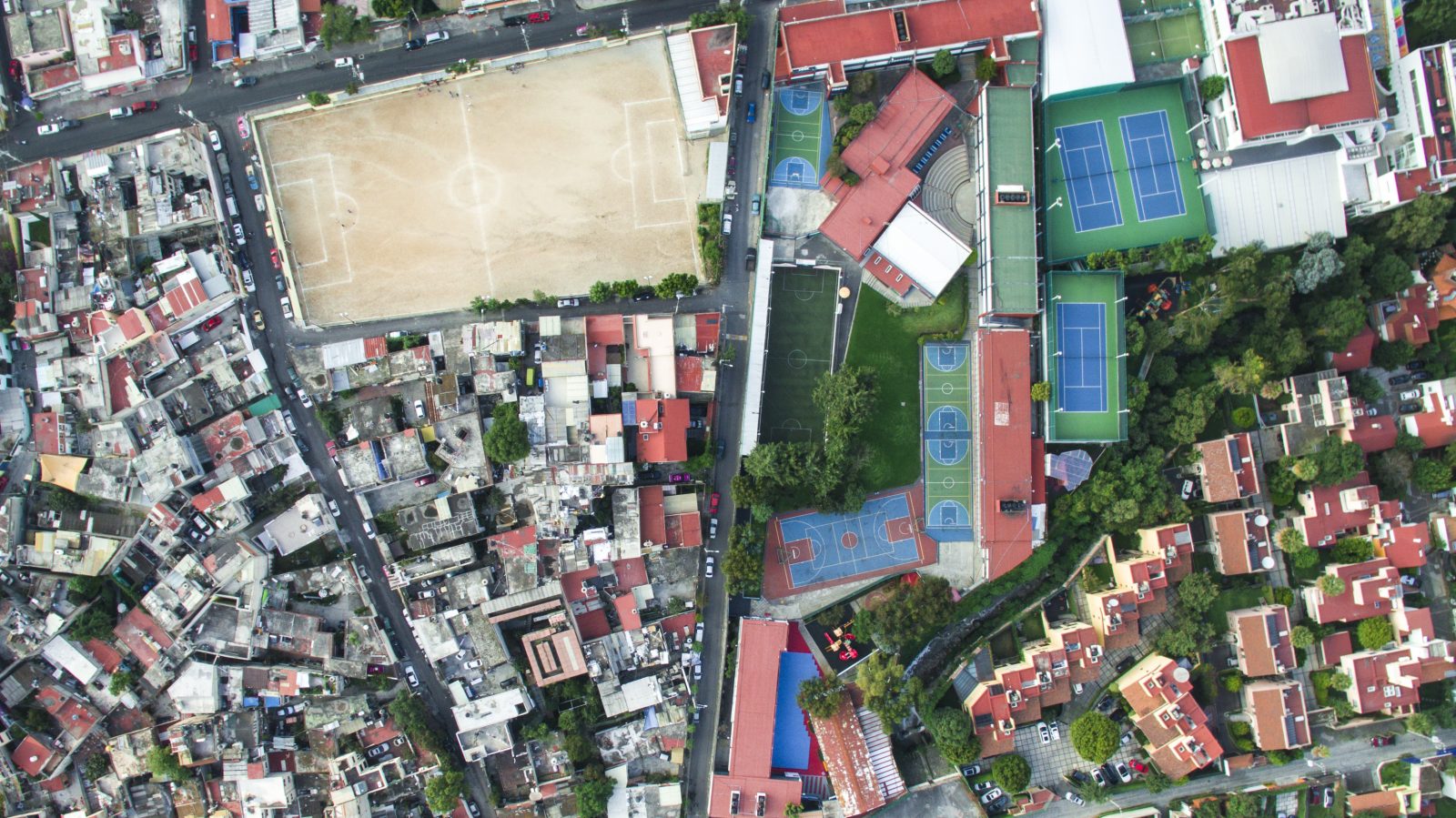
Juxtaposition of different neighborhoods in Mexico City. Image: Johnny Miller, Unequal Scenes.
NEW HAVEN, Conn. — Across cities worldwide, poorer neighborhoods take on a disproportionate share of environmental burdens, according to a first-of-its-kind research tool. The Urban Environment and Social Inclusion Index (UESI) finds that even in cities with strong overall environmental performance, lower-income areas often receive less than their proportional share of environmental benefits, like public transit and green space, and more of the burdens of air pollution and urban heat.
The new research effort, led by Data-Driven Yale — an interdisciplinary research group based at Yale University and Yale-NUS College — leverages high-resolution, large-scale and census data at a neighborhood scale to reveal how more than 30 cities perform at the intersection of environment and social equity at an unprecedented level of detail. It provides a novel way for cities to understand how residents living in the same city experience urban environments in vastly different ways, helping decision-makers better target future policy interventions.
“While the United Nations charged urban areas to be sustainable and inclusive, there are very few tools that allow cities to understand whether they’re meeting this goal,” said Angel Hsu, assistant professor of environmental studies at Yale-NUS College and director of Data-Driven Yale. “The UESI aims to fill this gap, making it possible to understand and compare environmental performance at a granular level.”
Through evaluation of neighborhood-by-neighborhood data showing how cities’ exposure to environmental assets and risks vary according to average household income levels, the UESI reveals both promising and troubling trends.
Most cities perform well on providing sustainable transit options and access to tree cover, for instance, while performance on wastewater collection and treatment varies widely. Urban responses to climate change are also a mixed bag: despite the threats rising temperatures pose to cities, many lack solid climate change mitigation and adaptation plans and transparent data showing progress.
Air pollution remains a widespread challenge. A stunning 96 percent of residents living within UESI cities breathe air that exceeds the World Health Organization’s guidelines for safe exposure to fine particulate pollution (PM2.5), one of the most dangerous urban threats to human health.
“Social inclusion and environmental performance are deeply intertwined,” said Kim Samuel, founder of the Samuel Centre for Social Connectedness in Montreal, Canada. “Environmental burdens can sharpen social inequality, while strong social ties can help make communities more resilient to challenges like urban heat waves and extreme weather events. The UESI enables cities to leverage these synergies, to provide for their citizens and adapt to a changing climate and economy.”
The UESI will be launched alongside the United Nations Framework Convention on Climate Change 24th Conference of the Parties (COP-24) in Katowice, Poland on December 6, 2018. The event will gather civil society representatives, government officials, researchers, and technologists together, to discuss how geospatial tools and high-resolution data can inform decision-making processes on the ground.
“From greening our schools to generating electricity from wastewater, Johannesburg is striving to improve equity and sustainability and overcome developmental challenges, without dramatically increasing our resource consumption,” said Mzukisi Gwata, Principal Specialist in Climate Change Adaptation for the City of Johannesburg, one of the cities featured in the UESI. “We look forward to using the UESI to help us target and track our efforts, and facilitate the exchange of ideas between cities with similar goals.”
The UESI is available to view at: http://yaledatadriven.org/urban/.
For additional information, please contact: Amy Weinfurter, amy.weinfurter@yale.edu, +1 847 224 2984

Recent Comments